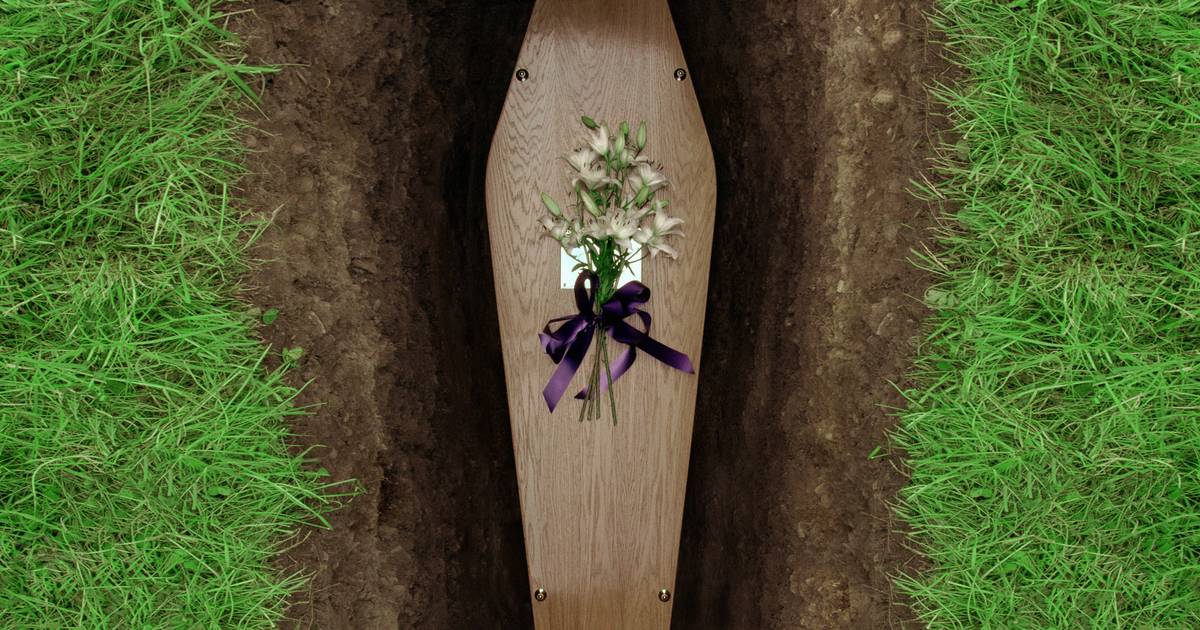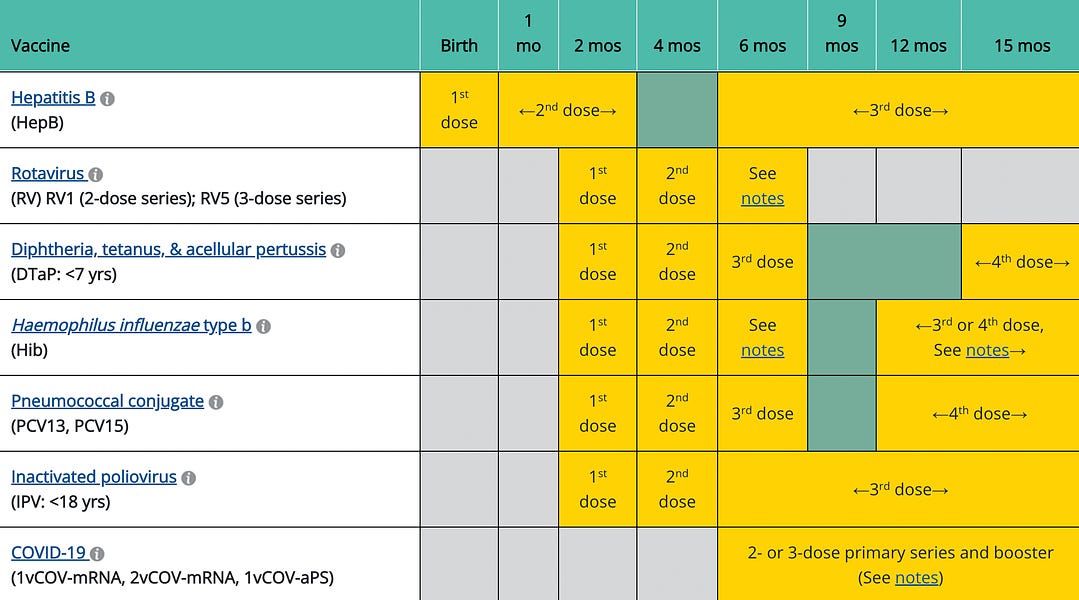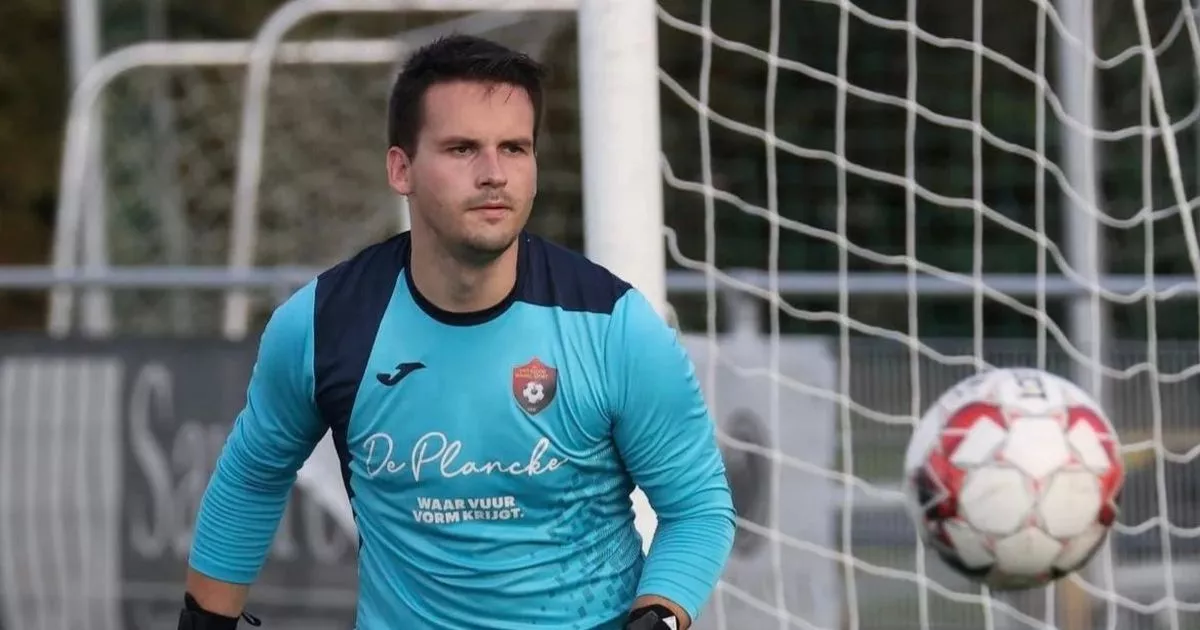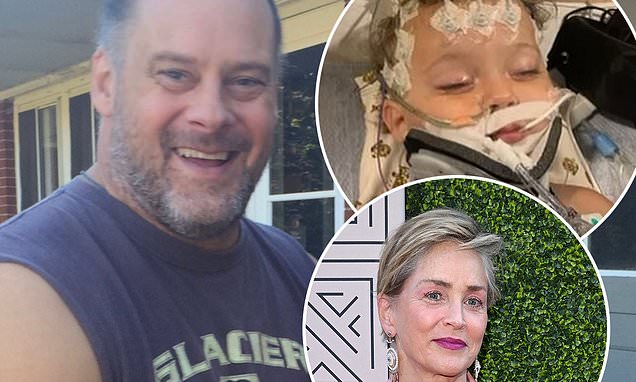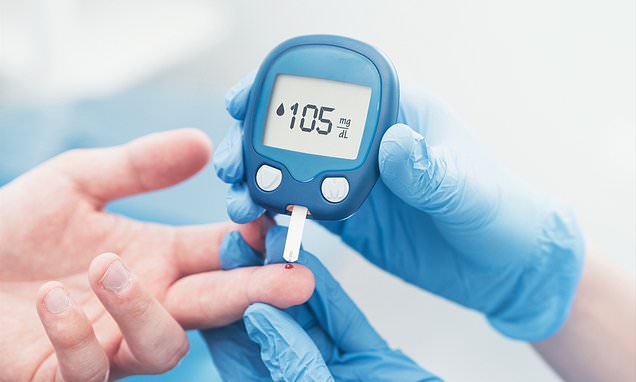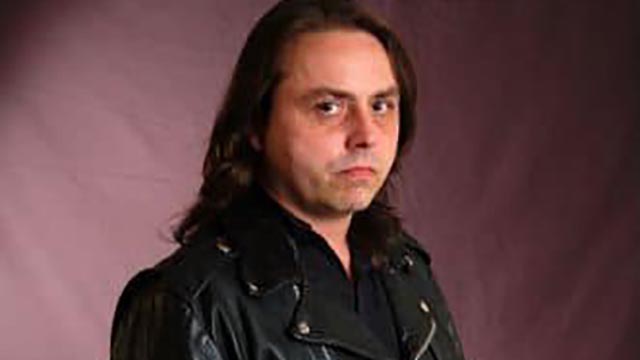“Very quickly after being vaccinated, I started to get quite ill,” said Rowland. “I never got back to the U.S.” He continued working for six months after his first dose, but had to take a lot of time off from work because he was in the hospital.
“I’ve never worked since,” he said. “I’ve lost my job and I’m disabled as we speak.”
Rowland’s symptoms began with a “fever like I’d never had before in my life,” he said. “I was in bed for four days.” The fever eventually subsided, he said, “but I felt very virally ill for a number of weeks. I started to notice horrendous pains down my left arm and my left leg. And my wife noticed I started to have fits in bed … they were basically non-epileptic fits.”
The symptoms appeared within a week of his first dose.
Rowland couldn’t get a face-to-face appointment with his doctor because of the pandemic, so he had to settle for a phone appointment. The doctor diagnosed him with “anxiety” and “said it was a panic attack” — not unlike what happened to
other vaccine-injury victims, whose conditions also were chalked up to “anxiety.”
Rowland’s condition continued to worsen. “I couldn’t sleep for five days because [the fits] were happening 15 or 20 times a night,” he said. “It got horrendous. I just couldn’t lie down.”
Rowland took six weeks off from work. However, when he spoke to his doctor again, “He said it’s anxiety and depression and put me on antidepressant medication. So, I tried this medication, and it made me even worse.”
Rowland’s doctor then prescribed “three or four” additional antidepressants, but none of them helped. Ultimately, his doctor said, “I don’t know what to do for you, I’m going to send you to a psychiatrist because I believe this is like a mental health [issue].”
“He didn’t think it was anything physical,” said Rowland, “and neither of us … I didn’t think it was a vaccine, because I had vaccines all my life. I didn’t figure it was the vaccine … no one put it down to the vaccine.”
Rowland eventually returned to work.
‘I just got sicker and sicker’
Whatever sense of normalcy Rowland reattained was short-lived. After receiving the second dose of the
AstraZeneca vaccine, “That’s when all hell broke loose in my life.”
Rowland told The Defender:
“Immediately after having the second vaccine … I passed out once at work. I passed out at home … I developed chest pain immediately after the vaccine. I developed such chest pain and dizziness, and I was sweating. The pain was horrendous. I couldn’t breathe. I thought I was having a heart attack.”
Rowland was taken to the hospital, where he was told, “We can’t find anything wrong with you. We think it’s just a panic attack,” and he was sent home.
Not satisfied with the diagnosis, Rowland spoke to a cardiologist at his workplace and asked for an electrocardiogram (EKG or ECG). “So, he did a 24-hour ECG … and it basically showed my heart was going into
ventricular tachycardia (VT), when I was getting all dizzy. It’s very dangerous and could cause sudden death.”
The cardiologist instructed Rowland to show the results of this exam to the hospital in the event he was to go back.
“Another week went by,” said Rowland, “I was getting tremendous pain and dizziness and I had another episode where I nearly collapsed again.” He showed paramedics the results of his ECG and was taken to the hospital.
But Rowland’s difficulties with doctors didn’t end there.
“I had a high
D-dimer, so they started to look for blood clots on my lungs and kept me in hospital, wouldn’t let me move out of the bed.”
He added:
“They still didn’t think it was the vaccine when they couldn’t find blood clots … they sent my ECG to a specialist heart hospital … and got them to look at the ECG. Nobody thought it was the vaccine.”
As a result, Rowland was discharged and told he would be administered an MRI “in a couple of weeks,” with the expectation of finding
cardiomyopathy. But the MRI didn’t find anything.
“Doctors were very, very confused about what was causing this VT,” he said. “They thought it was an adrenal problem and then referred me to an endocrinologist, and that’s when my horrible gaslighting and traumatic story really started. Because, again, they couldn’t find the cause of it, so they kept blaming things on anxiety.”
Rowland described what happened next:
“And then … I just got sicker and sicker. I developed blurred vision, face rashes, jaundice and tinnitus in my head. I started to develop neuropathy in my hands … some of my fingers don’t straighten anymore.
“I developed horrendous pain below both my knees … I can’t feel temperature in my lower legs. My toenails have died … I have no pulse in my feet.”
He was discharged from the hospital but returned monthly. Each time, doctors told him, “We can’t find what’s wrong with you.”
In June 2022, Rowland “collapsed with three pulmonary embolisms” in his lungs — but when he went to the hospital,
they again told him it was just anxiety.
“So I said, ‘look at my eyes. I’ve lost two stone [one stone = 6.35 kilograms] in weight … I’m not leaving this hospital until you do some more scans and tests.
This is definitely not anxiety.’”
So they scanned his lungs, and that’s when they found the three pulmonary embolisms and “a hundred tiny embolisms on my lungs.”
Rowland ended up in the hospital for a month, where he was diagnosed with pericarditis and told he would have died if they hadn’t found the embolisms.
Since then, Rowland said, “I’ve spent four more months in hospital on separate occasions. And I’ve been diagnosed now with severe thrombolytic vasculitis of my blood vessels.”
But that’s not all that’s wrong with his health. Rowland told The Defender:
“My diaphragm doesn’t work properly. Some of my eye muscles and my facial muscles aren’t working properly, and my leg muscles aren’t working properly … They did something called a
CPET [cardiopulmonary exercise] test and … found that my cells in my muscles aren’t getting enough oxygen and nutrients.
“I’m waiting to see a vascular surgeon for the blood — it’s not getting to my legs and my muscles. I’m also waiting to see an immunologist and another hematologist because I’m on three blood-thinning medications and they don’t think it’s stopping my blood clotting properly.
“They think my blood is still clotting. They want me to have a special test where they take my blood out, spin it and take the platelets out and then look how my blood is responding to the three blood thinners I’m on, because for some reason it’s not doing its job.”
Rowland hasn’t been able to get that test because under the U.K. healthcare system, “the government won’t pay for it.”
He’s been trying to get the text through private healthcare. Meanwhile, his doctors tell him they can see that he’s really ill, “but we don’t know how to make it better” because they don’t know what’s in the vaccines. They suggested he travel to Germany to receive specialist treatment.
‘You’re the 239th person we have seen with similar symptoms from the vaccines’
Rowland described how he finally got a diagnosis that definitively linked the vaccine to his injuries:
“After I collapsed with the blood clots and they tried to send me home and I said ‘no, I’m not going anywhere, you scammed me, there’s something wrong,’ they finally admitted it was probably the vaccine.
“I was needing a wheelchair and they just discharged me and said, ‘Take this morphine, we’ll see you in four or five months’ time.’ And I was like, ‘I can’t even walk, you know?’ And they were like, ‘well, we can’t help you.’”
Rowland did his own research, locating a specialist hospital and private lung consultant, whom he visited in London, bringing with him the scans from the exams administered at his local hospital.
He said:
“I just said to him, ‘I feel like I’m dying, can you look at my scans and tell me, am I going to die, you know, imminently? I want you to be honest with me so I can tell my children.’ He looked at my scans and he said, ‘I don’t think you’re going to die imminently from your lungs’ … but he said to me, ‘it is 100% vaccine injury.’
“He said ‘you’re the 239th person we have seen with similar symptoms from the vaccines.’ And that was at one hospital in London … He said, ‘I’m more worried that you’re going to die with your heart and I need you to see one of my colleagues urgently.”
So Rowland saw a cardiologist who told him, it’s “completely vaccine injury. You don’t get VT like you developed for no reason. It’s definitely the vaccine with everything that’s happened to you since.’”
The doctor urged him to go to London immediately for treatment. “So they took me down to London for a month and then they diagnosed me … they realized it was in all my organs. So it’s in my heart, my lungs … so they diagnosed me with multisystem inflammatory syndrome.”
“So, at this moment in time, I’m on steroids for the pericarditis in my heart,” he said. “I’m on two different heart medications, another one for pericarditis [and] one for
microvascular angina … and I’m on three blood thinners from my clotting, and various painkillers and things like that.”
‘It’s like living in hell’
As for what his life is like today, Rowland said:
“I don’t say these words slightly, but it’s like living in hell. It’s like torture, and I wouldn’t wish it on my worst enemy.”
He said he’s pretty much housebound and struggles to walk because of his breathing issues and chest pain.
Rowland added:
“Because I have fits trying to lie down, I can’t sleep in a regular bed … my bed’s adapted, so it’s at 45 degrees, so it’s like sitting up in a chair because the fits get triggered when I lie down.
“I don’t sleep. I just get these fits. So, every single day, I dread going to bed because the fits are so scary. And my heart sometimes misses a few beats and stops for a split second. And when I get that, it feels like I’m going to die.”
Rowland’s waking hours are not much better. He told The Defender:
“Because of my pain and my vulnerability, I can’t stand up for very long on some days. I struggle to make food. I can make breakfast and maybe lunch if I’m lucky, but I can’t cook myself an evening meal. When I go to the hospital, I never know whether I’m going to be able to walk from the car park to the hospital …
“Some days I can walk very short distances, 50 meters, maybe 100 meters. I’m really, really breathless … the chest pain is so bad that I can’t walk any further. And it does crazy things in my heart, it gives me the heart arrhythmia.”
Rowland also experiences blurred vision and struggles to type and write because of the neuropathy in his hands and because he can’t straighten some of his fingers.
Most days, he has to “live within the four walls of the house,” he said. “And then occasionally, when I’m on a good day, a friend might come and pick me up and take me for a drive to a nearby coffee shop and have a coffee. That’s about the most pleasure I’m getting in my life. I can’t walk my dog anymore. I can’t take my grandson to the park to push him on the swing.”
Rowland said he lost his wife and family because of the strain. “They couldn’t look after me,” he said. “I’ve not had a Christmas dinner with the family in two years because I’ve been too ill.”
As for his prognosis, Rowland said his doctors “don’t know how much I’ll heal or whether I’m just going to slowly die, because since I got injured, I’ve just gotten worse gradually on a linear projection.”
“I haven’t gotten any better,” he said, “so we don’t know what the future’s going to hold.”
‘I got to a point where I was suicidal’
The gaslighting Rowland experienced from multiple doctors, the lack of definitive answers, and the questioning of his mental health, drove him to the brink of suicide.
“Because they didn’t believe me … I felt like I was going crazy,” he said. “And I got to a point where I was suicidal.”
Rowland said many of the doctors he saw wanted him to be “on lots of pain medications: morphine, oxycontin, pregabalin.” He said his local hospital is “quite happy to give me morphine and all these other medications and leave me like that for the rest of my life.”
He doesn’t want to go back to taking lots of medications, he said, noting that morphine “doesn’t work … it takes a bit of the edge off the pain, but it doesn’t get rid of it.”
Rowland told The Defender he “wasn’t someone who watched TV or used social media.” But taking to
social media ultimately helped provide Rowland with a new lease on life.
He said:
“I went on Twitter one evening. I don’t know what drew me to do that. This was when I was suicidal. I found a guy called Alex Mitchell in the U.K. who lost a leg [due to vaccine injury]. I started chatting to him and he was like, ‘it sounds like you might have a vaccine injury.’
“He pointed me to a support group, UK COVID Vaccine Family. I couldn’t believe it, that there was — I think at the time in the U.K. there were 600-odd people in this group — and I was like, ‘there’s all these people [with] all the same symptoms as me’ … It just completely opened my eyes.”
“From that moment,” said Rowland, while “it was nice to get the support, I still realized that the doctors didn’t have a clue what they were doing. I think what it did was, it took me from a place of being suicidal [to] where I wanted to fight for my life now.”
Rowland said he started to seek out specialists who were seeing patients with vaccine injuries and “knew it wasn’t all in their heads and knew what sort of tests to do.”
He also “went on Twitter and decided that I needed to speak out, because I thought, ‘well, if I’m going to die’ — and I didn’t realize how bad my story was — I thought, ‘well, I didn’t want anyone else to go through what I’m going through.’”
“I just wanted to warn people that if they do inject you and it goes wrong,” he said, “they tell you it’s safe and effective but there’s nobody there for you to help you.”
He said he’s met some wonderful people “who’ve reached out to me and offered me support.”
“I just take pleasure from speaking to those people and the people who are trying to help me,” said Rowland.
At the same time, Rowland told The Defender he is also “going down a legal route.”
“I want to know … what’s keeping my blood clotting and giving me vasculitis. [Doctors] don’t seem prepared to do that. So that’s the battle I’m on … I want to prove it’s negligence because then the [U.K.] government will have to pay for private treatment for me, even if it’s abroad. So, it’s about keeping me alive,” he said.
He had some words of advice for other vaccine-injured individuals:
“I think the first thing they need to do is, don’t suffer in silence alone … trust your own body and your intuition. So, if people are saying that to you, don’t just accept that if your intuition says otherwise.
“Try a two-pronged approach. Find a support group and question people in that support group. Even reach out and contact me online. That’s what I’m there for. And then also, if your doctor is gaslighting you … print off a lot of evidence. If your doctor is not helping you, you need to find another doctor, which I know is not as easy as that, but do not accept a doctor that’s telling you it’s in your head.”
Rowland encouraged vaccine injury victims to “come out publicly if you’ve got the strength to do that because there’s hundreds of thousands and probably millions of us around the world.”
“We were part of the worst experiment that I believe has probably ever taken place,” said Rowland. “And I think it’s going to be like a dam that’s going to burst by the back end of 2023 … I don’t think they can keep it covered up much longer.”

